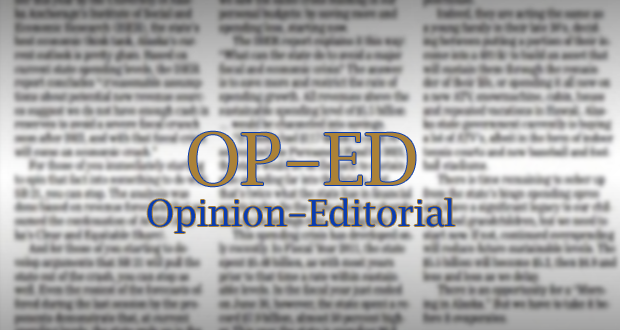By Stephen Cooper
Donald Trump bragged, via tweet, that he’s the Ernest Hemingway of Twitter. Unfortunately for us, the new president possesses neither the courage nor the self-control of Hemingway, winner of the 1954 Nobel Prize in Literature for writing unforgettably about bravery under fire. As the problems created by Trump-tweets pile up, the source of Trump’s addiction to Twitter has become all too clear. Eugene Robinson, the Pulitzer Prize-winning Washington Post columnist, described it in words worthy of John Steinbeck: “Trump’s Twitter tantrums are a message of weakness.”
When I read Trump’s recent Twitter attack on Congressman John Lewis, the venerated civil rights leader who, despite vivid memories and bloody images to the contrary, Trump had the temerity to write was “[a]ll talk, talk, talk – no action or results,” I was reminded of the lecture Toni Morrison gave when she won the Nobel Prize in 1993. Like the speeches of two previous Nobel Prize-winners, William Faulkner and John Steinbeck, her lecture extolled the power of language in explaining and validating human experience. “We die,” she observed. “That may be the meaning of life. But we do language. That may be the measure of our lives.”
Echoing George Orwell, Morrison warned that “the systematic looting of language can be recognized by the tendency of its users to forego its nuanced, complex, mid-wifery properties for menace and subjugation.” Foreshadowing Donald Trump’s grade school twitter-burns, she described “language that drinks blood, laps vulnerabilities, tucks its fascist boots under crinolines of respectability and patriotism as it moves relentlessly toward the bottom line and the bottomed-out mind.”
At her popular blog BrainPickings.org, Maria Popova praised Toni Morrison’s lecture as “perhaps our most powerful manifesto for the responsibility embedded in how we wield the tool that stands as the hallmark of our species.” I agree with this assessment, and with Morrison’s Orwell-like admonition. “Whether it is the malign language of law-without-ethics, or language designed for the estrangement of minorities,” she said, “it must be rejected, altered and exposed.”
I also agree with Kyle Sammin, the lawyer and writer from Pennsylvania who advised Donald Trump to delete his Twitter account, quoting Calvin Coolidge: “[t]he words of the President have an enormous weight and ought not to be used indiscriminately.” As Toni Morrison noted, Abraham Lincoln provides an even better example of presidential brevity: “When a President of the United States thought about the graveyard his country had become, and said, ‘The world will little note nor long remember what we say here. But it will never forget what they did here,’ his simple words are exhilarating in their life-sustaining properties because they refused to encapsulate the reality of 600, 000 dead men in a cataclysmic race war.”
By the time Republicans convened in Cleveland last summer, I had already blogged that the Republican nominee for president was the antithesis of Abraham Lincoln. He’s no Coolidge either. Hell, he may not be as good as Dan Quayle, who at least had the sense to stop explaining when he misspelled “potato” at a Trenton, New Jersey elementary school during the 1992 campaign. As Arthur Delaney pointed out in a recent Huffington Post headline, “Donald Trump Can’t Stop Tweeting Mean Things About People.” America’s new president is like a gambler on an all-night binge in Atlantic City, compulsively feeding nickel-and-dime tweets, retweets, and mentions into the slot-machine of his ego.
Since he shows no sign of stopping, Trump would do well to follow the example of John Steinbeck, whose son Thom—also a writer—had this to say about the virtue of authorial self-control during a 2012 interview with Alexander Jaffee. “Ultimately,” he noted, “the greatest amount of time in all writing is spent editing. My father said there’s only one trick to writing, and that’s not writing, that’s writing and rewriting and rewriting and rewriting. Like sculpture. I mean, the first thing off the top of your head isn’t the most brilliant thing you ever thought of. And then when you’re writing about it, when you want others to understand what you’re still talking about, then it really requires that you edit yourself really, really well, so that other people can comprehend it.”
Sadly, Donald Trump has a problem in this area that no amount of self-editing can fix. Describing John Steinbeck’s honesty, Thom wrote: “[e]verything he wrote had truth to it. That’s what he was addicted to. He was addicted to the truth.” As demonstrated by Twitter attacks on true American heroes like John Lewis, Donald Trump has the opposite addiction.
About the Author: Stephen Cooper is a former D.C. public defender who worked as an assistant federal public defender in Alabama between 2012 and 2015. He has contributed to numerous magazines and newspapers in the United States and overseas. He writes full-time and lives in Woodland Hills, California. Follow him on Twitter @SteveCooperEsq
This piece was written for Steinbeck Now. It is being published here with the author’s permission.




